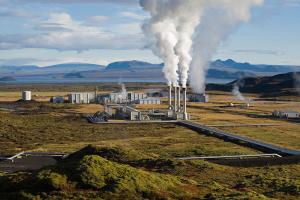Indonesia and Japan have reaffirmed their strategic partnership in energy transition with the financial closing of the Muara Laboh Unit 2 geothermal power project in West Sumatra.
The deal, valued at US$500 million (Rp 8.2 trillion), was finalized between PT Supreme Energy Muara Laboh (SEML) and Japan Bank for International Cooperation (JBIC).
The agreement was signed during a bilateral meeting between Indonesia’s Coordinating Minister for theEconomy Airlangga Hartarto and Fumio Kishida, Japan’s special envoy and former Prime Minister, in Jakarta on Monday, May 5, 2025. The meeting was a follow-up to a prior discussion between President Prabowo Subianto and Kishida.
“This 88-megawatt geothermal project in Solok, West Sumatra, marks a concrete showcase of our commitment under the Asia Zero Emission Community (AZEC),” Airlangga said.
The AZEC platform is a regional initiative led by Japan to promote energy transition and low-emission technologies in ASEAN countries. Through this partnership, both nations aim to achieve net-zero emissions while ensuring economic growth and energy security.
“It is a significant step forward in our energy transition efforts,” Airlangga cited.
The Muara Laboh project forms part of a broader framework of cooperation between Indonesia and Japan, particularly in decarbonization and renewable energy development.
According to Airlangga, the collaboration traces back to 2013 when Kishida, then Japan’s Foreign Minister, signed the Joint Crediting Mechanism with Indonesia, which later evolved into the AZEC initiative.
In addition to Muara Laboh, several other projects have been included in the first tier of AZEC cooperation. These include the Legok Nangka waste-to-energy projectin Bandung regency, West Java; the development of Sustainable Aviation Fuel (SAF), the Sarulla geothermal plant in North Sumatra; and a major electricity transmission line connecting Java and Sumatra.
“These projects signify the deepening of our energy partnership and our shared vision for a sustainable, low-carbon future,” Airlangga said. “This visit and the agreements made underline Japan’s strong commitment to support Indonesia’s green transition agenda.”
The financial commitment from JBIC is expected to not only support Indonesia’s clean energy targets, but also serve as a catalyst for further Japanese investment in strategic infrastructure and renewable energy projects across the archipelago.
